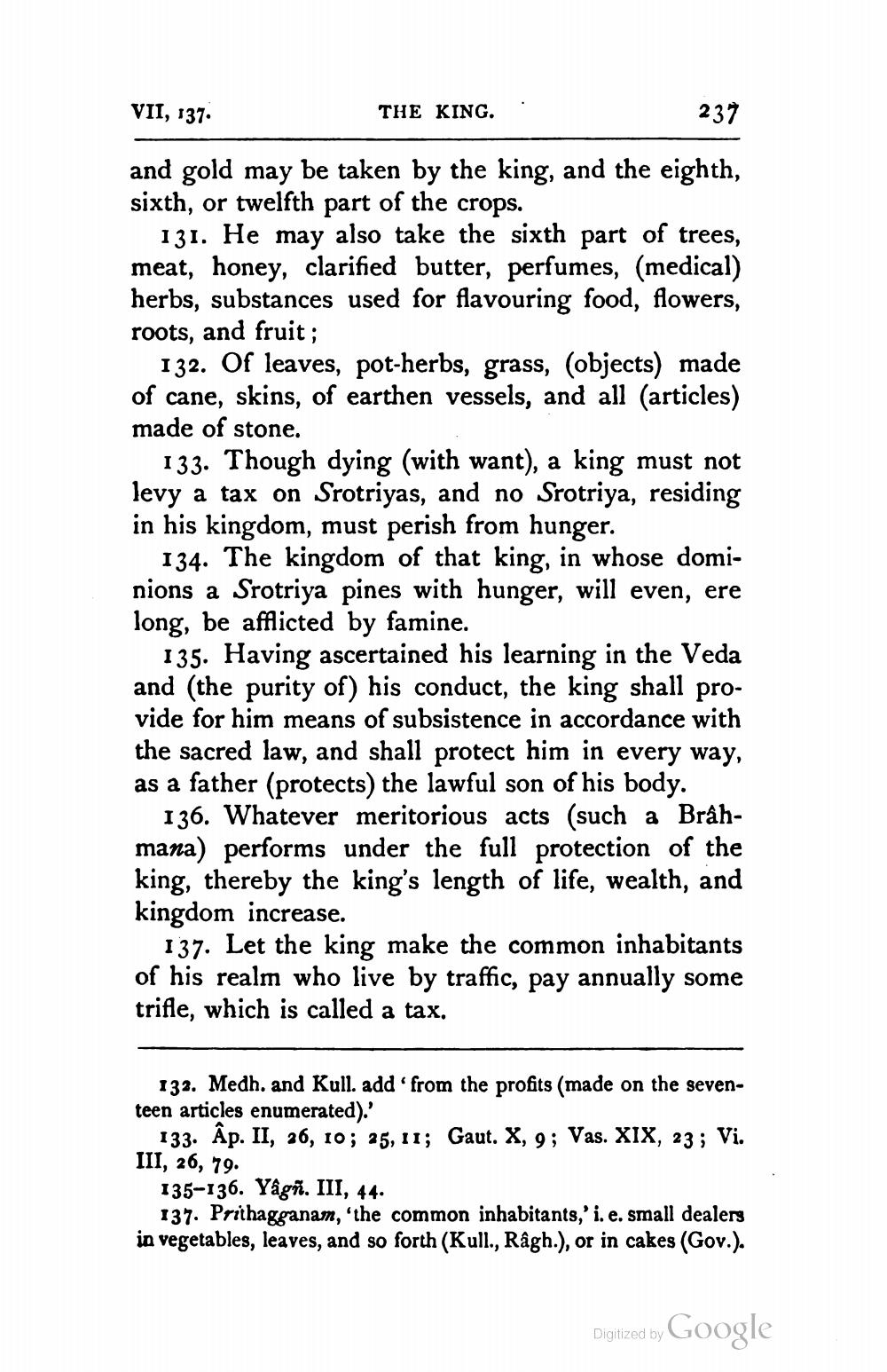________________
VII, 137.
THE KING.
237
and gold may be taken by the king, and the eighth, sixth, or twelfth part of the crops.
131. He may also take the sixth part of trees, meat, honey, clarified butter, perfumes, (medical) herbs, substances used for flavouring food, flowers, roots, and fruit;
132. Of leaves, pot-herbs, grass, (objects) made of cane, skins, of earthen vessels, and all (articles) made of stone.
133. Though dying (with want), a king must not levy a tax on Srotriyas, and no Srotriya, residing in his kingdom, must perish from hunger.
134. The kingdom of that king, in whose dominions a Srotriya pines with hunger, will even, ere long, be afflicted by famine.
135. Having ascertained his learning in the Veda and (the purity of) his conduct, the king shall provide for him means of subsistence in accordance with the sacred law, and shall protect him in every way, as a father (protects) the lawful son of his body.
136. Whatever meritorious acts (such a Brâhmana) performs under the full protection of the king, thereby the king's length of life, wealth, and kingdom increase
137. Let the king make the common inhabitants of his realm who live by traffic, pay annually some trifle, which is called a tax.
132. Medh. and Kull. add from the profits (made on the seventeen articles enumerated).'
133. Ap. II, 36, 10; 25,11; Gaut. X, 9 ; Vas. XIX, 23 ; Vi. III, 26, 79.
135-136. Yâgñ. III, 44.
137. Prithagganam, 'the common inhabitants,' i.e. small dealers in vegetables, leaves, and so forth (Kull., Rågh.), or in cakes (Gov.).
Digitized by
Digitized by Google




